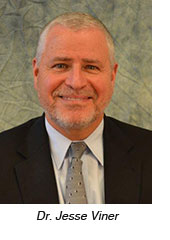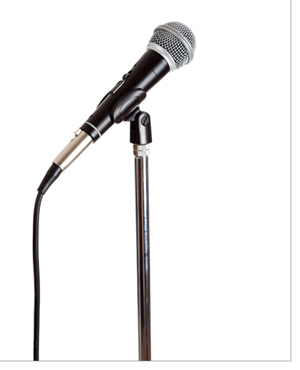 Over the past year, several notable research studies have shed light on some of the biological influences that contribute to anorexia, and have pointed the way to potential new treatment approaches and underscored the fact that this and other eating disorders may be more common than we may think. As much as I have wanted to cover this topic for Mom Psych, the task seemed to require someone who knows a lot more about it than I do—and today’s guest blogger does. Lauren Parkes, the niece of dear friends in Australia, is very intimately acquainted with the challenges of living with an eating disorder. We are privileged that she is willing to share her experience with us in the following post.
Over the past year, several notable research studies have shed light on some of the biological influences that contribute to anorexia, and have pointed the way to potential new treatment approaches and underscored the fact that this and other eating disorders may be more common than we may think. As much as I have wanted to cover this topic for Mom Psych, the task seemed to require someone who knows a lot more about it than I do—and today’s guest blogger does. Lauren Parkes, the niece of dear friends in Australia, is very intimately acquainted with the challenges of living with an eating disorder. We are privileged that she is willing to share her experience with us in the following post.
___________________________________________
Last week was mental health week, and I wanted to do something to raise awareness about something really important, but I was scared of what people would say. In fact, I was so scared of this that I changed schools, changed my name. I retracted from the social sphere because I wanted to disappear; to not be judged. I hoped I’d find happiness in places where traces of me did not exist. I wanted to get smaller and smaller until I stopped stealing oxygen from the rest of the population, to suffer through this thought-pattern in silence.
But I know now that that doesn’t help anyone; it means I went through this for nothing, which in retrospect I don’t believe to be true. Now I’m tired of denying I have suffered from acute anorexia for the last year, and lesser so in the years leading up to it, in fear of seeming whiny and attention-seeking (when I’d much rather dig a hole and hide in it). Why? Because it’s just making people continuously think—just as the media suggests—that living the way I and other anorexics do is okay. Normal. That we are healthy. I’ve been sick of girls telling me, when at a forced-hospitalisation weight, that I had an enviable figure. Even the nurse that was supposed to be looking after me said she wished she had my problem, whilst she inserted my nasal-gastric tube to pump food into me (I know. Messed. Up.)
I have to say something because it’s just not okay for people to want to live the way myself and other sufferers do in order to achieve a “look.” Society will give up everything for aesthetic, and its so sad that we get pulled into this whirlpool of self-worth being connected to numbers on scales or the reflection in the mirror. Type in “how to” into Google and you get the suggestion: “How to be anorexic.” Perhaps a year or so ago I would have clicked on this, like so many insecure people in pursuit of confidence in their physical selves as a means to attain inner-confidence, when confidence is the last thing anorexia gives you.
People who haven’t suffered from this illness will have trouble grasping that this isn’t about weight and food at all (that’s the result, not the cause), and furthermore that it isn’t a choice. I got it without wanting it, and it took me to hospital and psychiatric wards and back to realise something important that the world never teaches enough. Firstly: skinny isn’t all it’s made out to be. I was turned down jobs, told to eat a bigger breakfast from strangers, and even had someone spit at me when she drove past, yelling “EAT SOMETHING.” I broke down and cried, a heap of bones on the sidewalk, wanting nothing but to be accepted.
Secondly: Measurements, food-management, exercise or anything that’s abused to create a physical manifestation of how fragile you may feel inside (cuts, muscles, bones—take your pick); they’re not adequate means of finding content in oneself, nor is it a coping mechanism that delivers lasting comfort or sense of control. In fact, comfort and control are what it takes away from you, amongst countless other things. Achieving something physically does not awaken a self-contentedness that you never developed previously. If you don’t feel happy within yourself NOW, that’s the issue that needs dealing with, because trying to reinvent yourself physically or how you appear socially, is a separate matter—you’ll still be the same unhappy person on the inside.
I learnt that the hard way. Anorexia persists because whilst you still have variables in your life that can be more restricted and controlled, there is still hope in personal perfection. Perfection = supposed peace.
But in reality there are no montages, no gallant orchestra soundtracks, or video-edited camera pans that magically come together and form this moment when perfection is reached, to make you feel confident and strong. So you keep going, and going, and the mindset becomes exponentially perverted and deceived from the malnourished state of your brain, so that you lose sight of everything else. I did. All because I couldn’t deal with insecurity and because I lacked the resilience to tackle the everyday obstacles that life catapulted towards me. I couldn’t muster the courage to do anything but determine my worth by how people treated/mistreated me, what they said/didn’t say about me, when everything could have been different if I had learnt that your worth is only determined by YOU. That is the only steadfast sense of self-worth that remains a lifetime; mere comments that people say from day to day will change like the wind, and will leave you feeling like you have no concrete identity. But it’s there.
All of this may seem so commonsensical to you, as it does me now, but recognising logic when you currently reside in rigid illogicality of thought, doesn’t mean you are able to stop your ill outlook and behaviours. I can empathise with the mentally non-affected in this way, because I too was like you. I’d seen all the psychiatric ward documentaries and had not understood how they couldn’t simply fix themselves—that mental illness was not just people not wanting to change how they felt and making everyone else have to deal with them. But it’s REAL. What a terrifying revelation it has been for me.
I knew throughout my anorexia that I had a serious problem. I knew what I was doing was wrong, but at the same time it seemed so REAL to me, and I forgotten how to live any different. It made so much sense because over time, I’d biologically rewired my neurological pathways so that my body could run on the lack of food and excessive exercise I was doing, accommodating a thought pattern that pervertedly makes sense of defying life’s basic instinct: to eat and LIVE. That’s why anorexia is an extremely nature-defying problem, and why you can’t just “stop” when you want to, because your brain is physically not the same one you had before. And society often embraces its mindset.
I got onto various extreme diets during my problem; raw foodism, veganism, gluten-free-ism for the non-gluten-intolerant, etc. and I was championed for it. I never knew I had anorexia until it was too late, because my friends, family, every magazine to date, were praising me for having “so much self-control,” when many of these diets are actually used as a disguise for socially-accepted eating disorders. I wasn’t doing it “for the animals,” “for the environment,” or even why I thought I was doing it: “to be the healthiest person I can be.” It was for control, and it never gave me that.
Anorexia is the biggest killer out of all mental illnesses (20% die). Even though I’m still alive, I’ve lost friends, bone density, muscle-mass, the ability to have children (temporarily, hopefully), have scars on my wrists, have bald patches on my head, been in lock-down rooms on suicide-watch, had parkinson/epileptic-looking panic-attacks, and wasted my high school years to insecurity—with the cherry-on-top: a whole year of anorexia and suicidal pre-occupation.
All of this happens, around the world, all the time. On and on. In silence. With a false smile to hide the pain. I’m sick of my poor friends having cuts on their arms. Of primary schoolers throwing up their meals. Of people praising others who have lost weight when they were healthy before. Of guys enslaving themselves at the gym because they feel “puny.” Of hearing stories like several of my friends having been raped by their fathers and relatives when they were a child (the ward I went to is a very, sad place) and being forever shaken from the aftermath. I’m sick of people saying to depressed people: “just be happy” and to those with eating disorders: “why don’t you just EAT?”
Try telling a cancer patient to cure themselves, and you’ll see how helpful statements like that are. I’m sick of boys having to act like emotionless statues at school to fit in, only to cry silently in their beds at night, wanting to disappear. I know, because I hear their stories. I’ve held them when they cried.
No matter if you are heterosexual, homosexual, a schizophrenic intellectual. A white man, brown girl, green, blue, purple or black, an LSD-tripping insomniac. If you’re an anorexic perfectionist, an OCD receptionist, suicidal atheist, an alcoholic therapist—Yes, okay, I’m not going to feature in an Eminem album. What I mean is, it doesn’t matter who you are or where you come from; you ALL have a voice and a story, and you are entitled to feel not okay. We’re only human: and society has to stop teaching us that we shouldn’t possess things that make us a member of our species, having to shove all the emotional baggage, all our unique traits, in the cupboard under the stairs like they’re Harry Potter hiding from the Dursley’s. It shouldn’t have to be this way.
Please, if you’re suffering, seek help. You deserve happiness. Recovery is possible; take it from someone who thought it wasn’t. If you are suffering from an eating disorder, depression, anxiety, whatever it is you carry on your shoulders, it’s okay to lean on those around us for support. If you are a parent/friend/family member looking for someone with personal insight into any of the above-mentioned issues, please don’t hesitate to contact me or leave me a question.
Remember: you are not a college admission rank, a statistic, a grade, a measurement, the number of friends you have, the amount of boys/girls who like you, the classes you’re good at, what you eat, the compliments you receive, the criticisms that come your way, nor are you the things you do or fail to do. NOTHING can encompass all that you are, and when you try to fit into these types of categories, or determine your worth by them, you’re reducing yourself. You’re so much more.
LAUREN PARKES
Lauren now has a regular blog on Mom Psych: Please follow her on Inside Anorexia.


